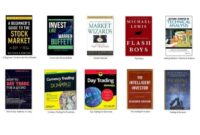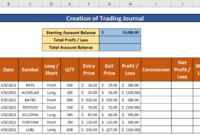How Forex brokers make money – this introduction delves into the intricate world of Forex trading, shedding light on the various revenue models and strategies employed by brokers to thrive in this competitive market.
As we navigate through the revenue streams and trading practices of Forex brokers, readers will gain valuable insights into the inner workings of this dynamic industry.
Introduction to Forex Brokers
Forex brokers play a crucial role in the financial market by facilitating currency trading for individuals and institutions. They act as intermediaries between traders and the global forex market, providing a platform for buying and selling currencies.
Importance of Forex Brokers
Forex brokers are essential for traders as they offer access to the forex market, which operates 24 hours a day, five days a week. Without brokers, individual traders would not be able to participate in forex trading due to the complex nature of the market and the need for specialized tools and platforms.
- Forex brokers provide leverage to traders, allowing them to control larger positions with a smaller amount of capital. This can amplify profits, but also increases the risk of losses.
- Brokers offer a range of trading instruments, including currency pairs, commodities, and indices, giving traders the opportunity to diversify their portfolios and hedge against currency fluctuations.
- They also provide essential market analysis, research, and educational resources to help traders make informed decisions and improve their trading skills.
Relationship between Forex Brokers, Traders, and the Market
Forex brokers act as the link between individual traders and the interbank market, where large financial institutions trade currencies. They execute buy and sell orders on behalf of their clients and earn revenue through spreads, commissions, and other fees.
Interested in the future of cryptocurrency? Explore the possibilities and trends in the digital currency world by reading about the Future of cryptocurrency in this insightful piece.
It is important for traders to choose a reputable and regulated forex broker to ensure the security of their funds and the integrity of their trades.
Revenue Models of Forex Brokers

Forex brokers generate income through various revenue models, primarily involving spreads, fees, and commissions. Understanding how brokers profit is essential for traders to make informed decisions.
Spreads and Profit
One of the main ways forex brokers make money is through spreads. The spread refers to the difference between the buying (ask) price and the selling (bid) price of a currency pair. Brokers offer traders the ability to buy at the ask price and sell at the bid price, allowing them to profit from the spread.
For example, if the bid price for EUR/USD is 1.2000 and the ask price is 1.2005, the spread is 5 pips. The broker earns this 5-pip spread as their profit for facilitating the trade.
Additional Fees and Commissions
In addition to spreads, forex brokers may charge traders additional fees or commissions for their services. These fees can vary and may include overnight financing charges, account maintenance fees, withdrawal fees, or inactivity fees.
Curious about how the Forex market works? Check out this informative article on How does the Forex market work to understand the ins and outs of trading currencies.
Some brokers also charge commissions on trades, either as a percentage of the trade size or a fixed fee per trade. These commissions add to the broker’s revenue stream and are separate from the spread income.
Understanding Spread in Forex Trading: How Forex Brokers Make Money

In Forex trading, the spread is the difference between the bid price and the ask price of a currency pair. It represents the cost of trading and is how Forex brokers make money.
Fixed Spreads vs. Variable Spreads
Fixed spreads remain constant regardless of market conditions, providing traders with predictability in trading costs. On the other hand, variable spreads fluctuate according to market volatility, potentially widening during times of high uncertainty.
Protect yourself from crypto scams by learning how to spot and avoid them. Find out valuable tips and tricks in the article on How to avoid crypto scams to stay safe in the digital financial landscape.
- Fixed spreads are ideal for traders who prefer stability in trading costs, especially during quiet market conditions.
- Variable spreads can offer lower costs when market conditions are favorable, but they may increase during volatile periods.
Impact of Spreads on Traders and Broker’s Revenue
The spread directly affects the profitability of traders, as it represents an additional cost that must be overcome to generate profits. For brokers, the spread is a primary source of revenue, as they earn a portion of the spread on each trade executed.
Understanding the dynamics of fixed and variable spreads is crucial for traders to manage their trading costs effectively and for brokers to optimize their revenue streams.
Trading Against Clients
When it comes to Forex trading, one controversial practice that some brokers engage in is trading against their clients. This means that the broker takes the opposite position of their client’s trade, potentially leading to a conflict of interest.
This practice can be a source of income for brokers in several ways. One common strategy is to profit from the spread, which is the difference between the bid and ask price of a currency pair. By trading against their clients, brokers can widen the spread and generate more revenue for themselves.
Potential Conflicts of Interest
One of the main concerns with brokers trading against their clients is the potential conflict of interest that arises. When a broker has a financial incentive to see their clients lose money, it can lead to unethical behavior and manipulation of trades. This can undermine the trust between the broker and the client, ultimately harming the client’s trading experience.
To mitigate these conflicts of interest, it is important for traders to carefully choose a reputable and regulated broker that prioritizes transparency and fair trading practices. By staying informed and vigilant, traders can protect themselves from potential exploitation by brokers who engage in trading against their clients.
Additional Revenue Streams for Forex Brokers

Forex brokers have various ways to generate revenue beyond spreads and commissions. Diversifying revenue streams is essential for brokers to remain profitable and competitive in the market.
Affiliate Marketing Programs
A common additional revenue stream for Forex brokers is through affiliate marketing programs. Brokers partner with individuals or companies who promote their services in exchange for a commission for each referred client who opens an account and starts trading. This not only helps brokers attract new clients but also increases their revenue through the affiliate commissions.
Partnerships with Liquidity Providers, How Forex brokers make money
Forex brokers often form partnerships with liquidity providers to access better pricing and execution for their clients. These partnerships allow brokers to offer competitive spreads and attract more traders to their platform. Additionally, brokers may receive rebates or incentives from liquidity providers based on the trading volume generated through their platform.
White Label Solutions
Some Forex brokers offer white label solutions to other companies or individuals who want to start their own brokerage. By providing access to their trading platform, technology, and liquidity, brokers earn revenue through licensing fees, setup fees, and profit-sharing agreements with the white label partners.
In conclusion, understanding how Forex brokers make money is crucial for traders and investors alike, as it provides a glimpse into the mechanisms that drive this financial ecosystem. By exploring the nuances of revenue generation and client interactions, we uncover the strategies that underpin success in the world of Forex trading.




